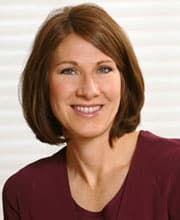By Angela Baker
 Recently I was meeting with my children and outlining the structure of our summer schedule.
Recently I was meeting with my children and outlining the structure of our summer schedule.
My 12 year old daughter, our second child, was visibly disgruntled about something during our meeting.
I met with her afterward and we had an enlightening heart-to-heart talk.
She expressed a lot of disjointed frustrations until we hit on the real issue.
She wanted very much to have the same privilege to study as her older, 15 year old brother.
I was surprised by this because she already spends many hours of her day reading, writing, painting, gardening, cooking etc. and I try very hard not to interrupt her activities.
What she wanted was to be recognized as a scholar and given the privileges and responsibilities that go with it.
When I asked her what phase she sees herself in, she determinedly, and with a hint of an excited smile, told me she is a scholar.
She asked if she could go to her room and write out her summer study plan and then show it to me. I, of course, encouraged her to do so.
Later, as I passed her closed bedroom door, I noticed a newly posted sign that read: “Leader in progress. Please do not disturb.”
A few hours passed and I received her written study plan in my “mail box.”
She started by saying, “Mom, you and I think differently.”
I wanted to cheer! I must be doing something right! I am so glad that we do think differently and that she still owns and courageously uses her ability to think independently.
I am glad this has not been squelched right out of her and I love and appreciate (most of the time) how we do think differently.
The whole experience took me so much by surprise. She is now a recognized scholar in our home.
She has a family stewardship and she studies with a great deal of vigor and even direction.
Really I don’t see a lot of difference in what she was doing before and what she is doing now.
The biggest difference is in how she is regarded and treated in our home and this is very important to her.
She now has a responsibility and stewardship and is accountable to me on a daily basis for these.
She also has the privilege of structuring her own study time and the assurance that if she acts the part of a scholar, I will not disturb her study time.
Though my daughter’s sign said, “Leader in progress, please do not disturb,” she wants and needs me to be involved.
Her sign did not say, “Please ignore.”
What she wants is the space to grow and the opportunity to develop her self-leadership skills.
What she needs is the uninterrupted time and space in which to dig deeply into her studies. Yet she wants and needs my involvement.
There are leaders in your homes as well as mine. How can we be involved without disturbing our “leaders in progress?”
Let me offer three suggestions that have guided my involvement with the scholars in my home. The first has to do with the structure of our time.
As my six children have gotten older, and I find myself balancing the needs of youth as well as toddlers, it has become increasingly important to have a method to our madness.
We have a daily time structure that supports who we are and what we are working to accomplish.
Woven into that structure are the family activities we feel are essential to our purpose and growth.
We have time for family scriptures and prayer, a time for work, a time for family reading, a time to unwind, and ponder and connect with one another, and especially a good-sized chunk of uninterrupted time for individual study/projects/play.
( I should qualify the word uninterrupted. It bests describes this time for my children and hints at the adjective I wish described my personal study time.)
We are fairly consistent with this structure though we may not follow it exactly every day of the week.
We are consistent enough that the children notice when something is missing and consistent enough to make it possible and very fun to bag the structure for a day or two opting for activities out of the ordinary.
This structure has made transition into scholar phase a natural process for two reasons.
First, it gives the love of learners time to get involved in their projects, books, and study.
This leads them to develop interests and passions that other wise could not grow.
These interests and passions are the spring boards into scholar phase and give pretty good hints about personal mission.
My daughter has often chosen to paint during this chunk of uninterrupted time.
Repeatedly, after hours of involvement in a painting or creative project she has suddenly run for a pencil and paper and written a poem.
In each of these poems she intuitively explores a different aspect of who she is, gets hints of her personal mission and what her place in the world might be. The following is one of the poems she wrote as a result of these uninterrupted chunks of time.
My Window
Through my window I can see
The many things of majesty:
Poems of children written here,
For their friends and loved ones dear;
Poems of fairies—run and leap!
Poems of love for all to keep;
Poems for young and poems for old;
Poems that tell of hidden gold!
Of all these things I’ll write for you
Poems that inspire you to do
What helps one through life,
Helps one fight the hidden knife,
That makes of life a thing of woe.
And so it’s time for me to show
What I can do and what I know:
The poems that through my window I see,
Can only be written that way by me.
My daughter has a natural inclination towards writing and other creative expression and her uninterrupted chunks of time have allowed her to explore and strengthen these.
My son, whose interests are in science and math, has spent time taking machines apart then studying the various technologies connected with the machines.
The discipline to use time effectively and wisely is an essential self-leadership skill and one that is only developed by doing it.
Through our family time structure the children learn the value of a schedule, how to put first things first, and how to be spontaneous when needed.
When they transition to scholar phase their time becomes more fully their stewardship and they learn through trial and error how to wisely use this precious commodity.
The second reason structure facilitates scholar phase is that almost instinctively my young scholars begin to structure their own time and study.
In fact that is one of the privileges of a scholar in our home—to have full responsibility to structure their time.
They may still participate in certain family activities, but they get to structure their time.
As long as they are true to their scholar stewardships they have the assurance that I will honor their personal time structure and will not disturb their studies.
The second suggestion is best described through the analogy of a seed.
This year our family garden has struggled because of the weather: too much rain and cool temperatures actually discouraged the growth of certain seeds in our garden.
We planted corn in late May and waited expectantly for it to come up.
Weeks of cooler, rainy weather passed and nothing happened.
We planted again in June and once again waited for weeks for the little seedlings to show themselves.
Finally, almost instantly, our garden sprouted neat little rows of tender corn seedlings.
Like magic our corn seedlings appeared.
That is how it seemed.
It seemed to be an all of a sudden thing.
Really there were principles at work, and growth taking place for weeks before we actually witnessed the wonder of the tiny seedlings unfolding from the crusty earth.
Similarly, the seeds of leadership can only germinate under certain nurturing principles.
Like our first corn seeds, too much of one thing and not enough of another, disrupts the growth of the seed.
Our job is to put the principles of leadership education in place and allow the seeds to grow.
If the principles are in place the seeds are very likely to thrive and grow to their God-given potential.
To trust this process is easier said than done, especially if we are unsure of the process of leadership education because we haven’t really experienced it ourselves.
Putting the principles in place and allowing them to work without disturbing the process takes faith.
It just wouldn’t work to be digging up the seed every so often to analyze and inspect and see if it was growing.
Obviously this would disrupt the growth of the seed. Trust that if the principles are in place the seeds will grow.
Each seed has its own growth time table and special needs.
Some need more water, others cool weather, still others need the heat of summer to come to their full potential. This is very true of the children—leaders in progress—in our homes.
One reason my daughter’s transition to scholar surprised me so much is that for my older son, scholar phase has been much slower in coming. His transition was not as dramatically marked.
His transition took years and I still wonder if he is really a scholar even yet, but I am trusting his timetable and working the principles that can make his leadership education a reality.
An oak takes much longer than a quaky.
For an oak, it takes many years to build the root system that will support that great tree and of course that root growth is not visible to the eye, but without it the mighty oak cannot stand firm.
The process cannot be forced or shortened without disturbing the growth of the seed.
Trust the inborn time table for the leaders in your homes.
The third suggestion is what I consider to be one of the most important needs of a scholar and especially a youth scholar.
This is the need to articulate what they are thinking, feeling, and discovering about themselves and the world because of their studies.
In our home this takes different forms three of which are scheduled mentor meetings, spontaneous discussions, and written study reports.
The meetings, discussions and reports vary in length and content but very often include a classic they are working on, a relationship, or a habit they are wanting to develop.
My role as parent mentor is to listen, support, affirm their efforts, and to assist them in anyway they may want me to.
In fact, the most effective questions I ask are “How’s it going?” and “How can I help?” When I am in this place and avoid judgment, my children open up and begin to really work on what they need to work on.
Surprisingly, they have not once told me that I can help by telling them what to do or how to do it. Rather they will ask for my assistance in things like getting certain books, in having more time to talk, or in daily follow-up on a habit they are trying to establish.
I follow their lead in this and try to meet them where they are.
My daughter created the daily reporting system she and I use.
She puts her daily report in a box she decorated months ago and that sits on my dresser.
I reciprocate with a written response that I place in her “mail box.” She enjoys the idea of communicating her ideas through writing and our letters back and forth will be cherished in years to come.
The need to talk is not always an easy one to meet with our adult busy lives and schedules, but it is essential to the growth of our children—especially our scholar children.
When my daughter was ten, she brought to me a passage from Louisa May Alcott’s book Eight Cousins which she had been reading.
She told me I needed to read it.
What my daughter taught me then and what Alcott was also teaching is the importance of maintaining an open communication with our children.
“Fathers and mothers are too absorbed in business and housekeeping to study their children and cherish that sweet and natural confidence which is a child’s surest safeguard and a parent’s subtlest power. So the young hearts hide trouble or temptation till the harm is done and mutual regret comes too late. Happy the boys and girls who tell all things freely to father or mother, sure of pity, help, and pardon; and thrice happy the parents who, out of their own experience and by their own virtues, teach and uplift the souls for which they are responsible” (Eight Cousins, p. 206).
The need to articulate what’s going on inside is not always evident.
Some children have the ability to talk incessantly while some may say or write very little.
I have both extremes in my two scholar children.
My son is a young man of few words, but deep insight.
My daughter is pleasantly long-winded and loves to talk.
Their different personalities require that I approach our discussions and written reports in different ways.
With my son I have had to get around his comfortably short and general answers and reports.
One thing that has helped is suggesting that he choose a quote from the book he is reading and copy it into his daily report.
This at least gives me an idea of what he might be thinking or gleaning from his reading.
Recently he has been reading L’Amour’s Sackett series. One day the quote he wrote in his report was “Victim of change.”
For some reason this phrase caught his attention.
It gave us the opportunity to explore his understanding of the ideas “victim” and “change” and to compare characters in both the Sackett book and Alas, Babylon.
To succeed, most scholars need to have a sounding person who listens, asks thoughtful and searching questions, and who does not judge or criticize.
From this kind of interaction comes a unique transmission that intensifies and clarifies vision.
Through articulating, questioning, and searching together with a mentor the youth scholar gradually comes to a vision of who he is, what his gifts and strengths are and what his mission in this world might be.
This transmission and increased vision are possibly the most important purpose and outcome for this kind of interaction.
There are “leaders in progress” living in your homes and mine.
They need our involvement in a way that does not disturb their progress. What our young scholars need is the space to grow and the opportunity to develop self-leadership.
They need uninterrupted time to dig deeply into their studies.
They need to be nurtured in homes where the principles of leadership education are in place.
Most importantly they need parent mentors who are modeling scholarship and who are ready to listen and affirm them in their efforts to get a leadership education.
A few years ago, my daughter depicted in a painting what this process is all about.
The painting is of me reaching my outstretched hand to meet hers and together we are climbing what she calls “the hill of greatness.”
On the back of the painting she wrote: “I am climbing the Hill of Greatness with you, and when I fall as I often do, you pull me up and I carry on with you.”
Yes, there are “leaders in progress” living in your home and mine who yearn to climb that hill of greatness.
There is much we can do to support them.
-July 2005
**************************
Angela Baker is the mother of seven children ages 5-21. She and her husband, Roger, live on a one-acre farm in the rural town of Erda, Utah, where their main crop is children.
For Angela, a favorite part of each day is reading to her children. She delights in clean bathrooms she didn’t clean; delicious food she didn’t cook; hearing the words “Can I help?” and spontaneous fun and laughter. She enjoys hiking, running, Taekwondo, and refreshing moments of just sitting. You can connect with Angela via email at angelabakerspeaks@gmail.com or on Facebook.
































Yeah for your daughter. I enjoyed reading this article. There were certainly leaders in my home and I sometimes I wish I had known more about all this back then. But children are smart and they grew despite whatever Don and I didn’t know.